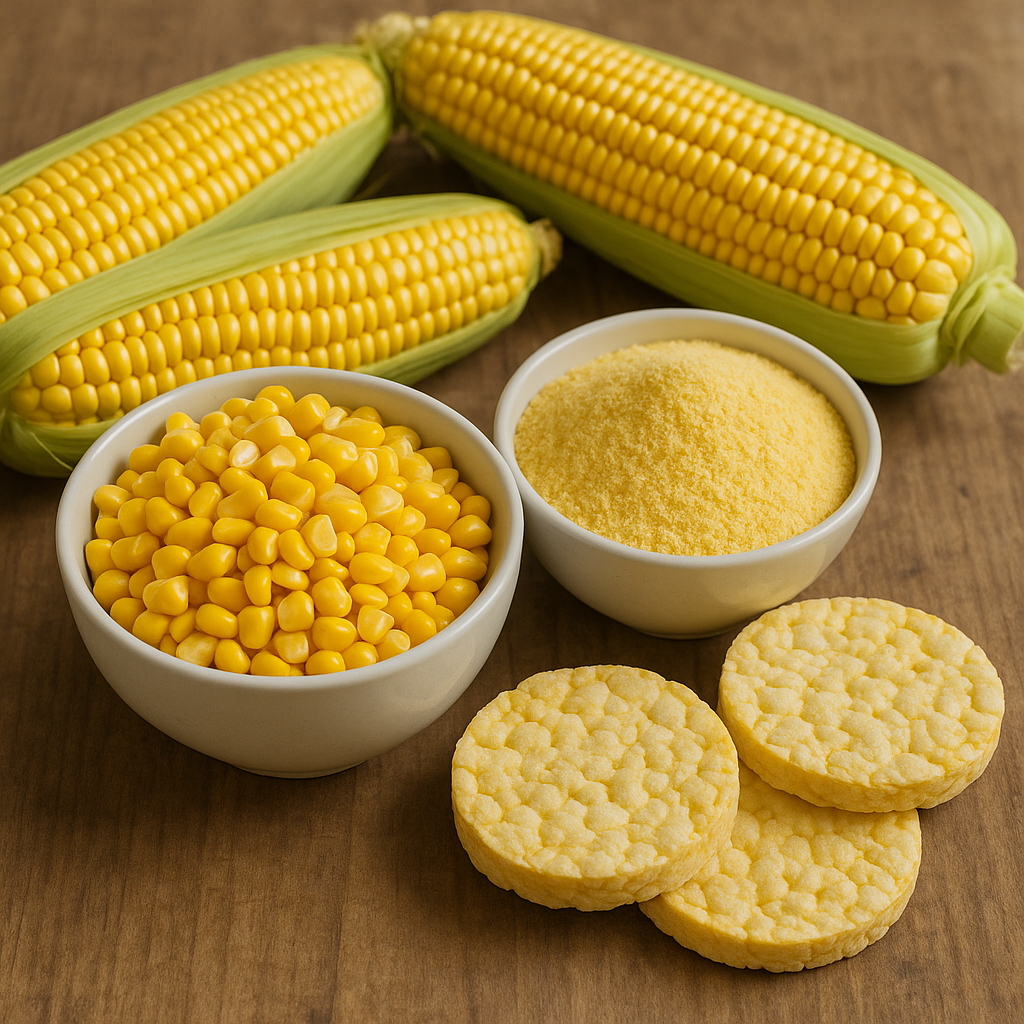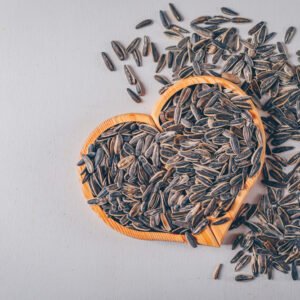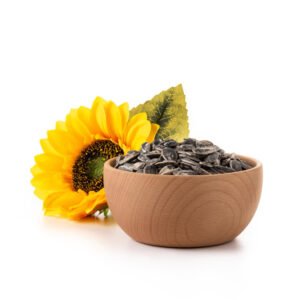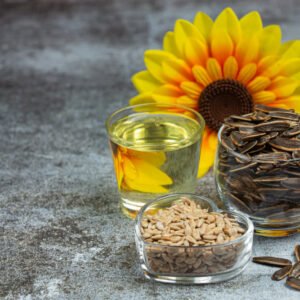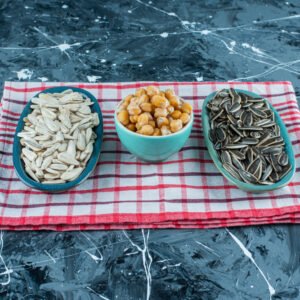Did you know that yellow corn accounts for nearly 80% of all corn production worldwide, feeding billions of people and supporting countless agricultural economies? This vibrant golden grain has become one of the most versatile and nutritionally significant crops on our planet, playing crucial roles in human nutrition, animal feed production, and industrial applications.
Yellow corn stands as a testament to agricultural innovation and nutritional science. From ancient civilizations to modern farming practices, this remarkable grain continues to shape our food systems while delivering exceptional health benefits. Understanding yellow corn’s nutritional profile, diverse applications, and wellness advantages can help consumers make informed dietary choices while appreciating the agricultural expertise required to produce high-quality grain.
Understanding Yellow Corn: More Than Just a Colorful Grain
Yellow corn, scientifically known as Zea mays, derives its distinctive golden hue from naturally occurring carotenoids, particularly beta-carotene and lutein. These pigments not only create the grain’s appealing appearance but also contribute significantly to its nutritional value and yellow corn health benefits.
Unlike white corn varieties, yellow corn contains higher concentrations of these beneficial compounds, making it a superior choice for both human consumption and animal feed applications. The grain’s robust nutritional profile stems from centuries of selective breeding and modern agricultural techniques that enhance both yield and nutrient density.
Agricultural producers like CMS Industries recognize yellow corn’s importance in global food security. As leading agricultural products manufacturers and suppliers, companies specializing in grains understand that yellow corn quality directly impacts nutritional outcomes for millions of consumers worldwide.
Comprehensive Nutritional Profile of Yellow Corn
The nutritional composition of yellow corn makes it an exceptional addition to balanced diets. A single cup of yellow corn kernels provides approximately 177 calories, delivering substantial energy while maintaining relatively low fat content.
Macronutrient Breakdown
Yellow corn contains approximately 41 grams of carbohydrates per cup, primarily in the form of starch and dietary fiber. This carbohydrate content provides sustained energy release, making yellow corn an excellent choice for active individuals and growing families.
The grain delivers about 5.4 grams of protein per cup, containing essential amino acids that support muscle development and cellular repair. While not a complete protein source, yellow corn complements other grains and legumes to create nutritionally balanced meals.
Essential Vitamins and Minerals
Yellow corn serves as an excellent source of several B-complex vitamins, including thiamine, niacin, and folate. These vitamins support nervous system function, energy metabolism, and cellular growth processes.
The grain provides significant amounts of vitamin C, contributing to immune system support and collagen synthesis. Additionally, yellow corn contains vitamin A precursors, primarily beta-carotene, which supports vision health and immune function.
Mineral content includes magnesium, phosphorus, and potassium, essential for bone health, muscle function, and cardiovascular wellness. These minerals work synergistically to support overall physiological processes and contribute to yellow corn health benefits.
Remarkable Health Benefits of Yellow Corn
Eye Health and Vision Support
The carotenoids lutein and zeaxanthin found in yellow corn accumulate in the retina, providing natural protection against age-related macular degeneration and cataracts. Regular consumption of yellow corn can help maintain optimal vision throughout life.
These antioxidant compounds filter harmful blue light and reduce oxidative stress in ocular tissues. Research suggests that individuals consuming carotenoid-rich foods like yellow corn experience lower rates of vision-related disorders.
Digestive Health Enhancement
Yellow corn’s fiber content promotes healthy digestion by supporting beneficial gut bacteria and facilitating regular bowel movements. The insoluble fiber helps maintain intestinal health while soluble fiber assists in cholesterol management.
The grain’s resistant starch content acts as a prebiotic, nourishing beneficial microorganisms in the digestive system. This prebiotic effect contributes to improved gut health and enhanced nutrient absorption.
Heart Health and Cardiovascular Protection
Regular yellow corn consumption may support cardiovascular health through multiple mechanisms. The grain’s fiber content helps regulate cholesterol levels, while its potassium content supports healthy blood pressure maintenance.
Antioxidant compounds in yellow corn help protect against oxidative stress and inflammation, both contributing factors to cardiovascular disease development. The grain’s folate content also supports homocysteine metabolism, important for heart health.
Blood Sugar Management
Despite containing carbohydrates, yellow corn has a moderate glycemic index, meaning it causes gradual rather than rapid blood sugar increases. The fiber content helps slow carbohydrate absorption, promoting stable blood glucose levels.
This characteristic makes yellow corn suitable for individuals managing diabetes when consumed in appropriate portions as part of balanced meals. The sustained energy release helps prevent blood sugar spikes and crashes.
Diverse Applications and Uses of Yellow Corn
Human Food Applications
Yellow corn transforms into numerous food products through various processing methods. Whole kernel corn provides direct nutritional benefits while processed forms create diverse culinary options.
Cornmeal, corn flour, and corn starch represent common processed forms used in baking, cooking, and food manufacturing. These derivatives maintain many nutritional benefits while offering different textures and applications.
Popcorn, perhaps the most popular snack application, demonstrates yellow corn’s versatility. Air-popped corn provides a whole grain snack option with minimal processing and retained nutritional value.
Animal Feed Excellence
Yellow corn serves as a primary ingredient in livestock and poultry feed formulations. Its high energy content and digestible nutrients support animal growth, reproduction, and milk production.
Agricultural suppliers like CMS Industries understand that quality yellow corn directly impacts animal nutrition outcomes. Premium grain varieties ensure optimal animal performance while maintaining cost-effective feed solutions.
The grain’s palatability makes it highly acceptable to various animal species, from dairy cattle to poultry. Its consistent nutritional profile allows feed manufacturers to create balanced rations meeting specific dietary requirements.
Industrial and Commercial Applications
Beyond nutrition, yellow corn supports numerous industrial applications. Ethanol production utilizes corn’s fermentable carbohydrates to create renewable fuel alternatives.
Corn-based plastics and biodegradable materials represent growing applications addressing environmental sustainability concerns. These innovations demonstrate yellow corn’s potential beyond traditional food and feed uses.
Pharmaceutical and cosmetic industries utilize corn-derived compounds in various formulations, showcasing the grain’s versatility across multiple sectors.
Quality Considerations and Selection Guidelines
Selecting high-quality yellow corn requires understanding visual and tactile indicators of freshness and nutritional value. Premium grains display uniform golden color, plump kernels, and minimal damage or discoloration.
Agricultural producers and suppliers focus on proper harvesting, storage, and handling practices to maintain grain quality. Temperature control, moisture management, and pest prevention ensure optimal nutritional retention and safety.
When purchasing processed yellow corn products, consumers should prioritize minimally processed options that retain maximum nutritional value. Organic certification may indicate reduced pesticide exposure and enhanced environmental sustainability.
Sustainable Agriculture and Yellow Corn Production
Modern yellow corn production increasingly emphasizes sustainable farming practices that protect environmental resources while maintaining productivity. Crop rotation, soil conservation, and integrated pest management support long-term agricultural viability.
Companies like CMS Industries, with their commitment to sustainable agricultural solutions, demonstrate how responsible farming practices can enhance both grain quality and environmental stewardship. Their focus on eco-friendly practices aligns with global sustainability goals.
Water-efficient irrigation systems, precision fertilizer application, and soil health monitoring represent key components of sustainable yellow corn production. These practices ensure continued availability of high-quality grain while minimizing environmental impact.
Incorporating Yellow Corn into Daily Nutrition
Meal Planning and Preparation
Yellow corn integrates seamlessly into diverse meal plans, from breakfast porridges to dinner side dishes. Its mild flavor complements various ingredients while providing substantial nutritional contributions.
Fresh corn on the cob offers seasonal enjoyment while frozen and canned options provide year-round availability. Proper preparation methods preserve nutritional value while enhancing flavor and texture.
Creative cooking applications include corn salads, soups, casseroles, and grain bowls that showcase yellow corn’s versatility. These preparations can accommodate various dietary preferences and restrictions.
Portion Control and Balance
While yellow corn provides excellent nutrition, appropriate portion sizes ensure balanced caloric intake. A half-cup serving typically provides adequate benefits without excessive calories.
Combining yellow corn with protein sources and other vegetables creates nutritionally complete meals. This approach maximizes nutrient density while supporting overall dietary goals.
Individuals with specific health conditions should consult healthcare providers regarding appropriate yellow corn consumption levels. Personal nutritional needs may influence optimal intake amounts.
Conclusion: Embracing Yellow Corn’s Golden Potential
Yellow corn represents far more than a simple agricultural commodity. This golden grain delivers exceptional nutritional value, supports diverse applications, and contributes to global food security. Understanding yellow corn health benefits empowers consumers to make informed dietary choices while appreciating the agricultural expertise required for quality production.
From supporting eye health and digestive wellness to providing sustainable energy and essential nutrients, yellow corn deserves recognition as a nutritional powerhouse. Its versatility in both human food and animal feed applications demonstrates remarkable utility across multiple sectors.
As agricultural innovation continues advancing, companies like CMS Industries play crucial roles in ensuring high-quality yellow corn remains accessible to consumers worldwide. Their commitment to sustainable farming practices and premium agricultural products supports both nutritional goals and environmental stewardship.
Ready to explore premium agricultural products that support your nutritional goals? Contact CMS Industries today to learn more about their comprehensive range of grains, pulses, and agricultural solutions. Visit their website to discover how quality agricultural products can enhance your dietary wellness and support sustainable farming practices.
Frequently Asked Questions
Q1: What makes yellow corn nutritionally superior to white corn varieties?
Yellow corn contains higher concentrations of carotenoids like beta-carotene and lutein, providing enhanced vitamin A precursors and antioxidant benefits that support eye health and immune function compared to white corn.
Q2: How much yellow corn should adults consume daily for optimal health benefits?
A serving size of half to one cup of yellow corn kernels (80-160 grams) provides substantial nutritional benefits while maintaining balanced caloric intake as part of varied, healthy meal plans.
Q3: Can individuals with diabetes safely include yellow corn in their diets?
Yes, yellow corn’s moderate glycemic index and fiber content support gradual blood sugar increases when consumed in appropriate portions as part of balanced meals with protein and healthy fats.
Q4: What storage methods best preserve yellow corn’s nutritional value and quality?
Store fresh corn refrigerated for 2-3 days, frozen corn in airtight containers for 8-12 months, and dried corn in cool, dry places with proper moisture control to maintain optimal nutrition.
Q5: How does yellow corn contribute to sustainable agriculture and environmental protection?
Yellow corn production supports crop rotation systems, soil health improvement, and renewable resource development while providing efficient land use for both human nutrition and livestock feed applications.

